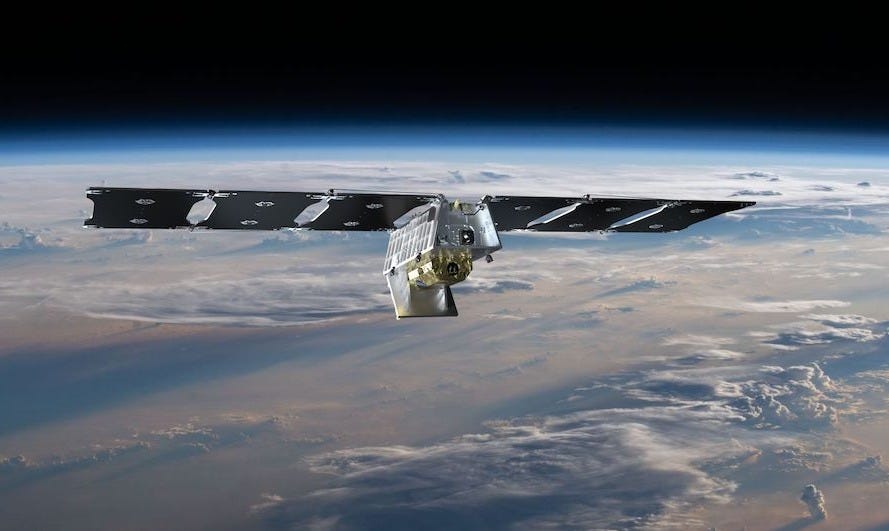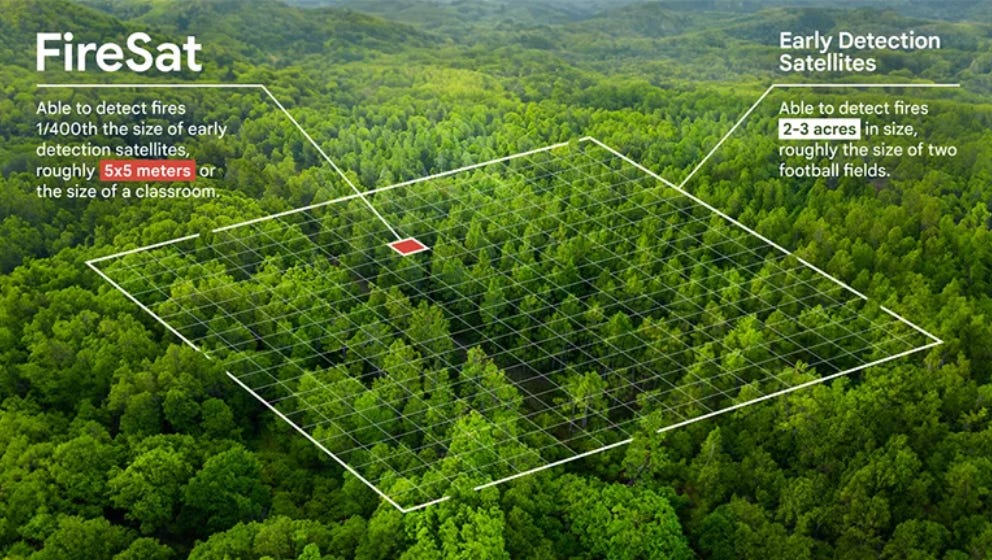Muon Space Secures $146 Million in Series B Funding to Expand Satellite Constellations

Mountain View, California-based small satellite manufacturer, Muon Space, announced the close of its oversubscribed $89.5 million Series B1 round today, bringing total Series B funding to $146 million, following the company's initial $56.7 million Series B close in August 2024. The new capital includes $44.5 million in equity and $45 million in credit facilities. The round was led by early-stage investor Congruent Ventures and included existing investors, Activate Capital, Acme Capital, Costanoa Ventures, and Radical Ventures. New investor ArcTern Ventures also joined the funding syndicate.
The recent funding will be used to scale production and acquire propulsion startup, Starlight Engines, founded in 2022 by veteran propulsion experts Todd Bailey and Mark Hopkins. This strategic acquisition aims to mitigate potential supply chain bottlenecks and support the company's expansion as an end-to-end space systems provider.
Since December, Muon has increased its workforce by 50% to 150 employees and is actively recruiting for numerous positions to support new facilities capable of producing 500 satellites annually in the 100–500+ kilogram class, according to CEO Jonny Dyer. “We are observing clear demand signals from both commercial and government sectors. This expansion is designed to meet that demand and stay ahead of it. By the end of 2027, we expect to be meeting demand for approximately 100 satellites per year. While this is part of a long-term strategy, it is grounded in current contracts and pipeline planning.”
Muon Space launched its first satellite, MuSat-1, in 2023, two years after its founding. This satellite was deorbited at the end of 2024 after completing its mission. MuSat-2, which supports Department of Defense weather programs, remains operationally healthy since its launch in 2024. Muon’s third satellite, launched in March 2025, serves as the protoflight for FireSat, a low Earth orbit wildfire-monitoring system developed in collaboration with the nonprofit, Earth Fire Alliance. The next block of three FireSats was ordered in May. “We are very excited about the early data collections and anticipate releasing a public first light soon,” Dyer stated. The FireSat project has received financial backing from Google Research, the Gordon and Betty Moore Foundation, and other non-governmental organizations.

Additionally, Muon plans to deploy a thermal-infrared imagery satellite for Hydrosat and three spacecraft for Sierra Nevada Corporation’s commercial radio frequency remote sensing system this year. Other announced customers include the National Reconnaissance Office, Space Force, and Space Development Agency. Muon aims to significantly scale operations in the coming years, having surpassed $100 million in new contracts signed in 2024.
This funding also supports the recent opening of a new 12,000-square-meter production facility in San Jose, California, designed to manufacture and test satellites from raw materials to finished spacecraft. “This marks a major expansion, making us one of the few companies capable of producing hundreds of satellites per year,” Dyer said. “We’re now able to offer customers build-to-launch timelines measured in months - and do so at scale.”

Finally, Muon’s acquisition of Starlight Engines, a start-up developing solid-propellant Hall-effect thrusters, extends the company’s vertically integrated Halo satellite platform, which also leverages in-house-built infrared and radio frequency instruments. Starlight’s zinc-fueled thruster system reduces costs and supply chain vulnerabilities associated with typical xenon and krypton-based systems previously used by Muon. “Propulsion remains one of the most persistent cost and supply chain challenges in satellite manufacturing,” stated Paul Day, Muon’s vice president of spacecraft production. By integrating this technology in-house, Day noted, the company “can accelerate delivery timelines while improving schedule reliability and overall mission performance.” To date, four Starlight thrusters have been delivered to customers across various mission areas, although none are yet in orbit. The first Muon satellite equipped with a Starlight thruster is slated for launch in 2026.
"Muon is building the high-performance scale solution the space industry has been missing," said Joshua Posamentier, Managing Partner at Congruent Ventures. "By fulfilling mission requirements with a configurable, vertically integrated platform spanning hardware, software, and operations, they deliver a unique path to on-orbit capabilities - at a pace and price point that commercial, civil and national security customers urgently need."




